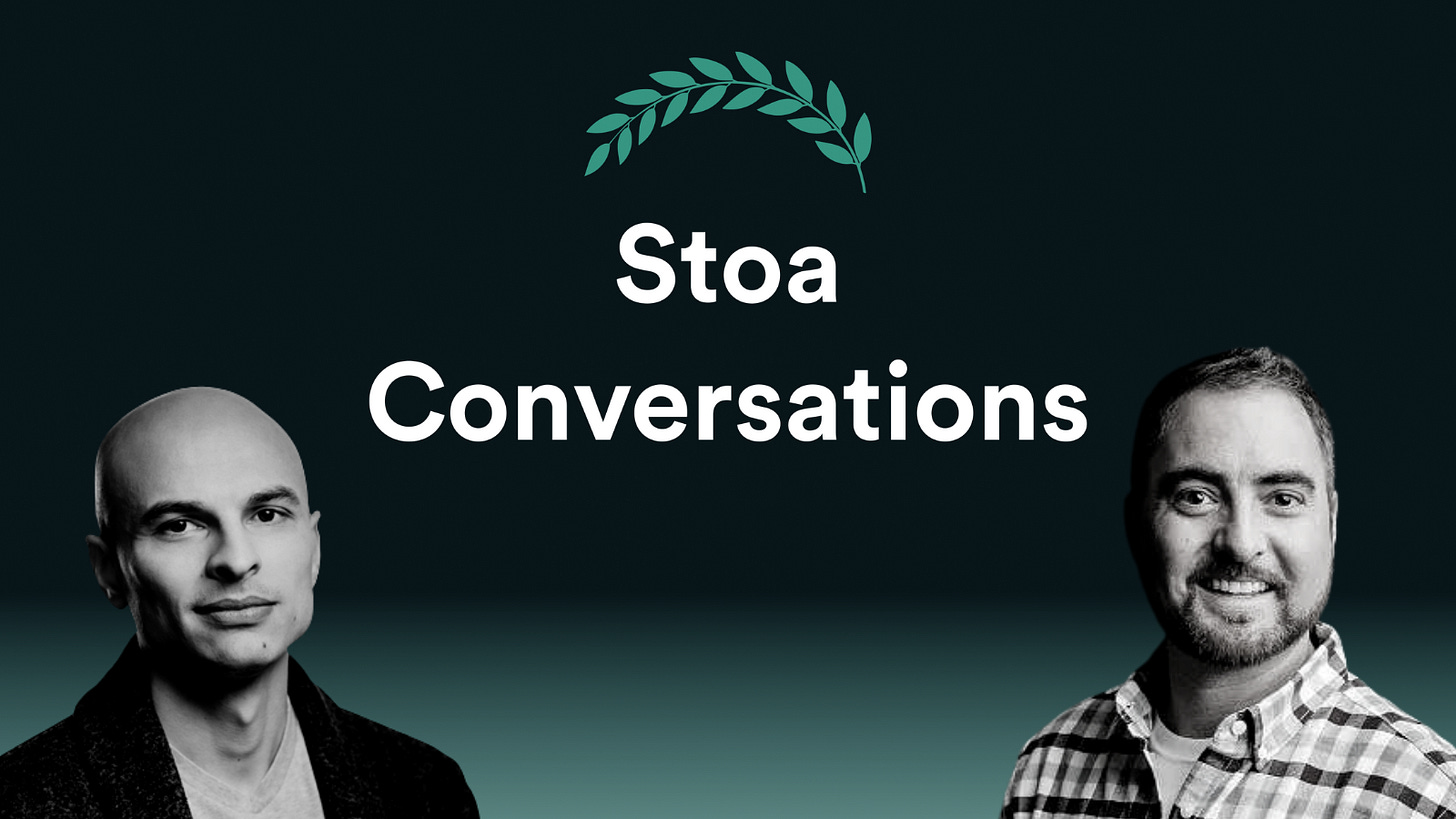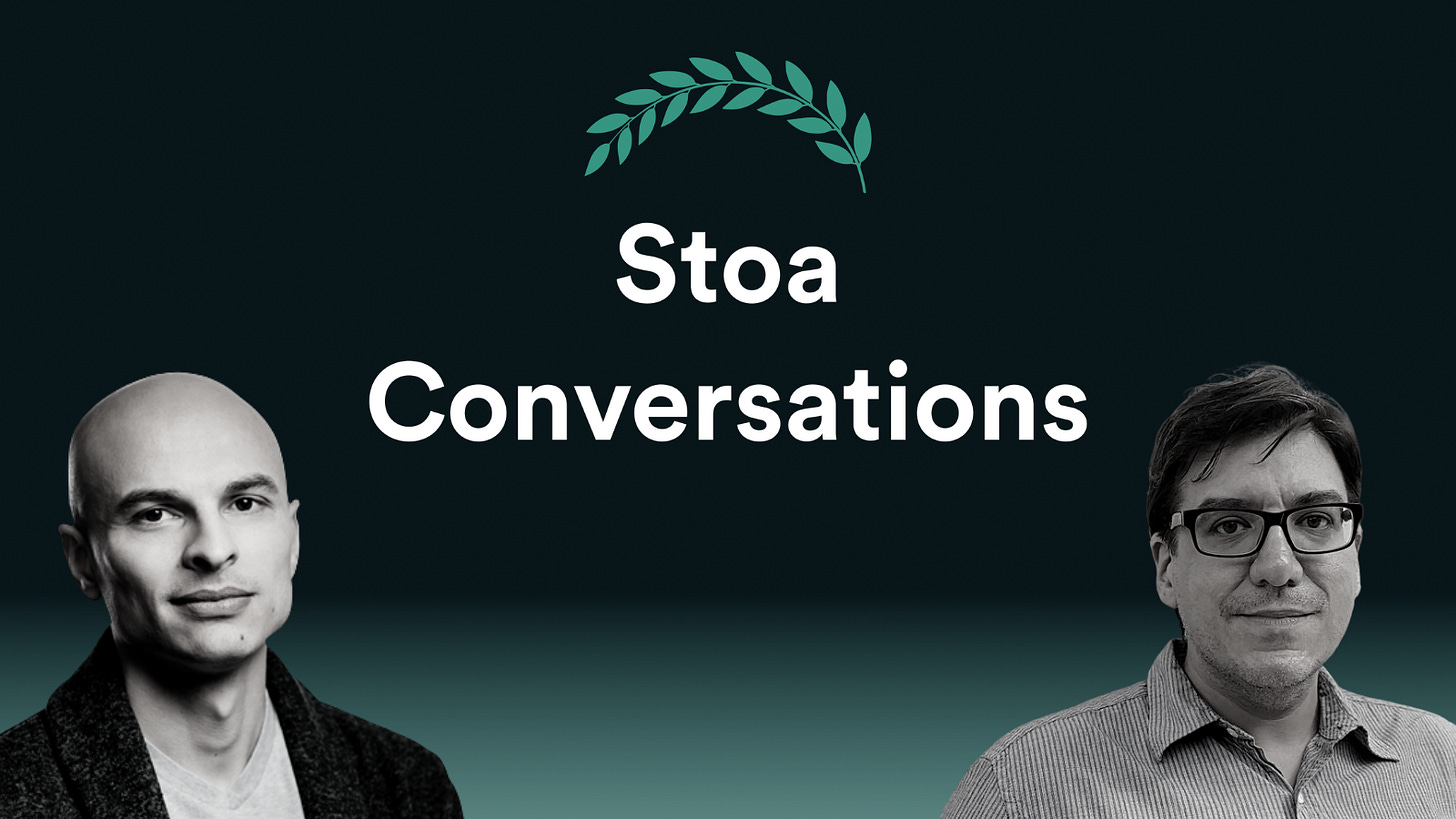Stoicism & Buddhism
The role of desire
Welcome to The Stoa Letter, the newsletter on Stoic theory and practice.
Every week we share two emails to help you build resilience and virtue with ancient philosophy. Each email includes one meditation on Stoic theory, one action to do in order to become more Stoic, and links to the best resources we’ve found.
🏛️ Theory
I’ve been thinking about the relationship between Buddhism and Stoicism lately. Top of mind are recent conversations I had with Greg Lopez on Mindfulness and with Noah Rasheta, the author of No Nonsense Buddhism.
There are differences with Buddhism of course. But Stoicism has been called the Western form of Buddhism for a reason.
Noah Rasheta talks about attending a seminar on the meaning of life understood from the perspective of major religions. Most presenters simply answered the question from their perspective – this is what Christianity says, this is what Islam says, this is what Hinduism says, and so on.
The Buddhist flipped the question around and asked, “Why do you want to know?” More important than answering the question, is understanding your desire behind it.
Both Stoicism and Buddhism place our desires and aversions at the root of our suffering.
For the Stoics, our desires for indifferents – status, health, wealth, and pleasure are misplaced.
To see this, Epictetus distinguished between desire and impulse. Desires, when they’re frustrated, result in unhappiness and passion. Like desires, impulses motivate action, but their frustration doesn’t result in suffering. You can think of impulse with the slogan “strong actions, weakly held” – actions are strong because they’re done with resolve and excellence, but they’re weakly held because the world may have other plans.
Buddhism advises that we relax our cravings for things that are not good or realistic. Stoics would do the same. Indeed, Epictetus held that the discipline of desire was the most important domain because if we’re not desiring the right thing, we will miss the mark:
The most important and urgent of these domains is the one that has to do with the passions. A passion is only ever the result of frustrated desire or ineffective aversion. This is the domain that entails mental turmoil, confusion, wretchedness, misery, sorrow, grief, and fear, and which makes us envious and jealous, until we can’t even listen to reason.
Discourses, 3.2.1-5
It’s desire that spawns negative emotions and it’s those passions that blind our decisions and judgments.
Beginning with recognition, the Stoic and Buddhist provide ways to master desire.
🎯 Action
Bring to mind whether there’s a desire that results in passion. Consider one thing you can do to reduce the intensity of that desire.
🔗 Links
❗️ Registration for our live course on becoming more Stoic closes within a week.
🎧️ Listen to the conversations with Greg Lopez and Noah Rasheta here:

Noah Rasheta on Buddism (Episode 86)
What Buddhism is and why it matters – even for non-Buddhists.
stoameditation.com/blog/noah-rasheta-on-buddism-episode-86


Greg Lopez on Buddhism and Stoicism (Episode 56)
Making sense of two ancient traditions.
stoameditation.com/blog/greg-lopez-on-buddhism-and-stoicism

📖 The desire to avoid suffering is self-defeating.
✉️ Check out this 10-day email series from What Is Stoicism? Start your next 10 days with Stoic morning routines that take only 10 minutes.
What did you think about today's letter?
🏆️ Share The Stoa Letter
If you find what we’re doing useful, please share it. Just have people sign up with your link below.
Share The Stoa Letter
{{rp_personalized_text}}
Or copy and paste this link to others: {{rp_refer_url_no_params}}
Get hundreds of Stoic meditations and lessons with the Stoa app (free download)


